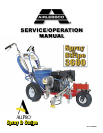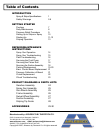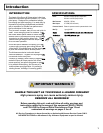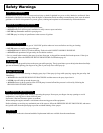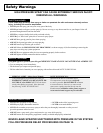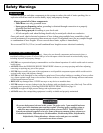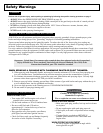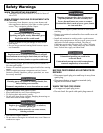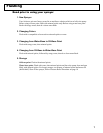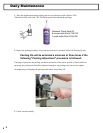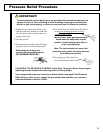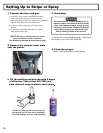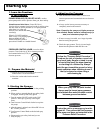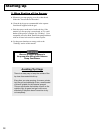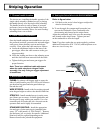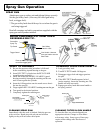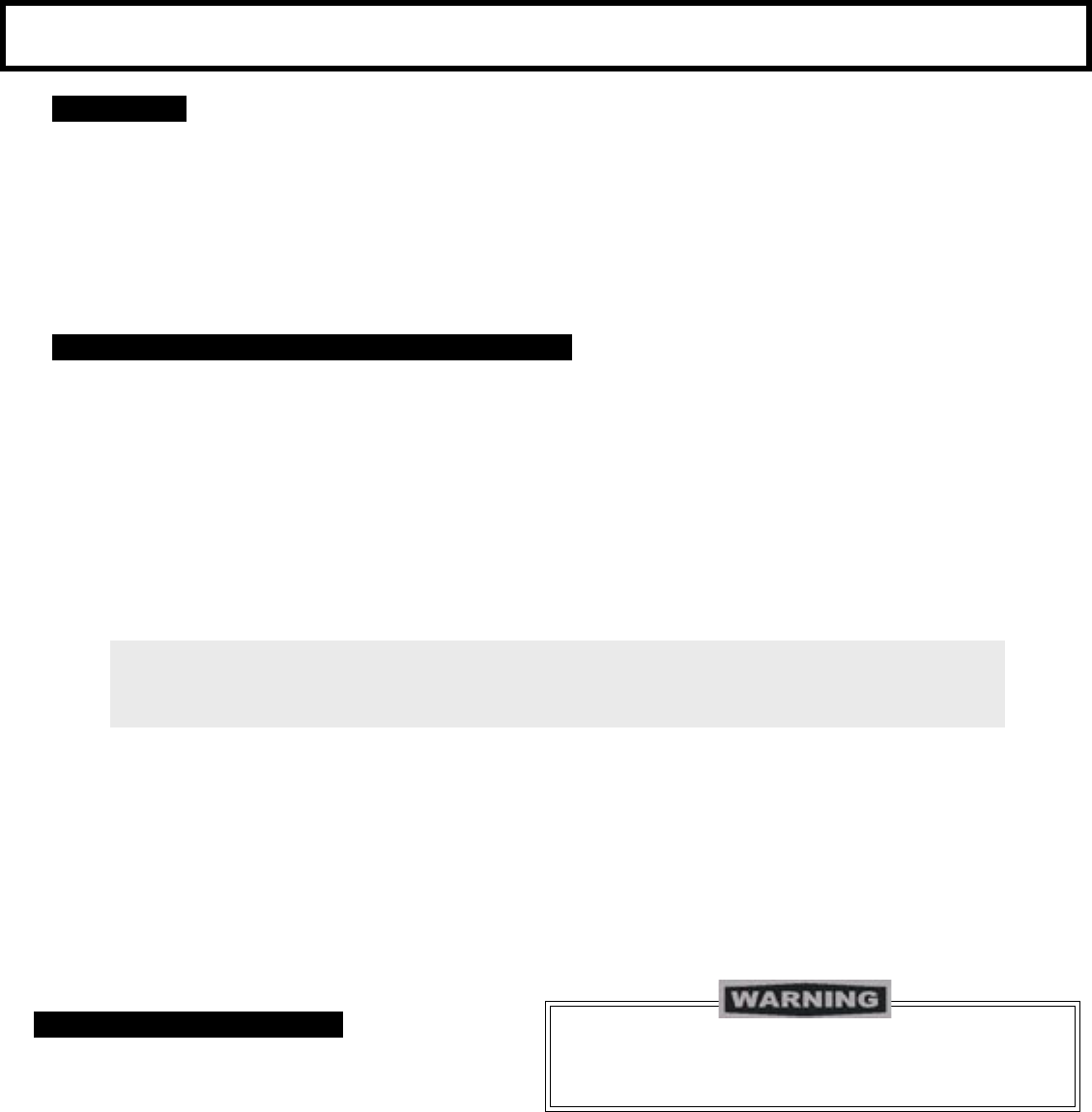
WHEN ADDING FUEL
• Turn engine OFF and let engine cool at least 2
minutes before removing gas cap.
• Fill fuel tank outdoors or in well ventilated area.
• Do not overll fuel tank. Fill tank to
approximately1 inches below top of neck to
allow for fuel expansion.
• Keep gasoline away from sparks, open ames,
pilot lights, heat and other ignition sources.
• Check fuel lines, tank, cap and ttings frequently
for cracks or leaks. Replace if necessary.
PREVENT STATIC SPARKING FIRE/ EXPLOSIONS
ALWAYS be sure all equipment and objects being sprayed are properly grounded. Always ground sprayer, paint
bucket and object being sprayed. See "grounding" on page 4 for detailed grounding information.
Vapors created when spraying can be ignited by sparks. To reduce the risk of re, do not plug in or unplug any
electrical cords in an enclosed spray area,. This can create sparks when there is any chance of igniting vapors still
in the air. Follow the coating & solvent manufacturers safety warnings and precautions.
Use only conductive uid hoses for airless applications. Be sure gun is grounded through hose connections. Check
ground continuity in hose & equipment. Overall (end to end) resistance of un-pressurized hose must not exceed 29
megohms for any coupled length or combination of hose length. Use only high pressure airless hoses with static
wire approved for 3000 psi.
WHEN SPRAYING & CLEANING WITH FLAMMABLE PAINTS OR PAINT THINNERS:
1. When spraying with ammable liquids, unit must be located a minimum of 25 feet away from spraying area
in a well ventilated area. Ventilation must be sufcient enough to prevent the accumulation of vapors.
2. To eliminate electrostatic discharge, ground the spray unit, paint bucket and spraying object. Use only high
pressure airless hoses approved for 3000 psi which is conductive.
3. Remove spray tip before cleaning gun and hose. Make contact of gun with bucket and spray without the tip in
a well ventilated area, into the grounded steel bucket.
4. Never use high pressure in the cleaning process. USE MINIMUM PRESSURE.
5. Do not smoke in spraying/cleaning area.
GAS ENGINE PRECAUTIONS
Important: United States Government safety standards have been adopted under the Occupational
Safety & Health Act. These standards, particularly the General Standards, Part 1910, & the
Construction Standards, part 1926 should be consulted.
FLUSHING
Reduce risk of injection injury, static sparking or splashing by following the specic cleaning procedure on page 7.
• ALWAYS follow the PRESSURE RELIEF PROCEDURE on page 10.
• ALWAYS remove the spray tip before ushing. Hold a metal part of the gun rmly to the side of a metal pail and
use the lowest possible uid pressure during ushing.
• NEVER use cleaning solvents with ash points below 140º F. Some of these are: acetone, benzene, ether,
gasoline and naphtha. Consult your supplier to be sure.
• NEVER smoke in the spraying/cleaning area.
Safety Warnings
WHEN STARTING ENGINE
• Make sure spark plug, mufer, fuel cap and air cleaner
are in place.
• Do not crank engine with spark plug removed.
• If fuel spills, wait until it evaporates before starting
engine.
• If engine oods, set choke to OPEN/RUN
position, place throttle in FAST and crank until
engine starts.
WHEN OPERATING EQUIPMENT
• Do not tip engine or equipment at angle which
causes gasoline to spill.
5
Gasoline & its vapors are extremely
ammable & explosive.
Fire or explosion can cause severe burns or death.



